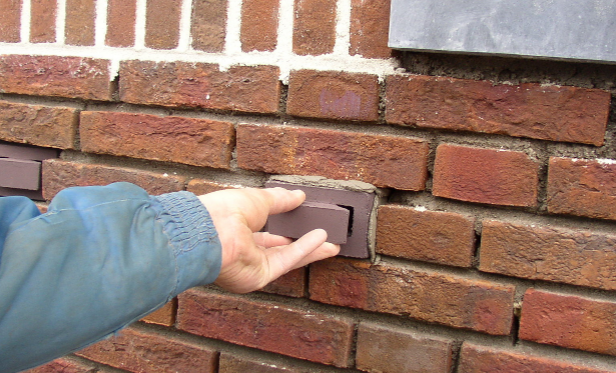Rising damp generally occurs in old buildings, they mainly occur when ground water rises into and through the capillaries of the mortar and bricks of buildings. With time, a kind of musty smell develops as more concrete gets exposed to ground water. The rate of evaporation and the pore structure of mortar and brick are the two factors that help water in rising within the concrete. In comparison to coarse pored material, the masonries consisting of fine pores in great proportions allow water to rise high. Rising damp is a very serious condition for buildings and therefore looking out for the best rising damp treatment is utterly important for homeowners.

The Effect of Rising Damps
What you can see on the walls of a building when rising damp happens is because of the contents which are present in the water that rises from the ground. These contents include chlorides, sulphates, nitrates and soluble salts. As ground water rises by way of the capillaries, the contents present in water will tend to follow along. Nevertheless, the water might evaporate, leaving salt contents behind. With the occurrence of rising damp, more water is allowed to enter which leaves more salts behind which turns more concentrated with time. In addition to this, because nitrates and chlorides are hydroscopic, which means they possess the ability of absorbing moisture from the surroundings, greater concentration of salt attracts moisture in greater amounts. This situation gets worsened if weather conditions in an area seem to be humid. Blocking this dampness with various decorations does not come as a good solution because the decorations can get contaminated by salts.
Effective Treatment for Rising Damps
Counteracting the adverse effect of rising damp requires proper rising damp treatment. There are different treatment options for rising damp that can be taken into account. The perfect treatment for rising damp generally consists of installing a chemical known as DPC. This chemical can easily be injected by making use of special injecting tools. This procedure is then followed by replastering involving the use of a good quality salt retardant. There is another great treatment that can be used for getting rid of rising damp and that is the use of top quality damp-proofing cream. This cream needs to be injected in the holes present in the masonry. The use of an effective damp-proofing cream actually helps in simplifying the process of treating rising damps because there is no replastering required further.
What are Damp Proofing Membrane Systems?
Effective and useful damp proofing membrane mechanisms are specifically designed for dealing with moisture held in the capillaries of mortar and bricks used in buildings. However, it is to be noted that these systems are suitable only for above ground applications. In situations where earth bears against the structure making the walls damp, the damp proofing membrane systems could not be a remedial measure. Waterproofing systems would be the right options for such conditions. Nevertheless, with the prominent and the quick results produced by damp proofing membrane systems, they are considered effective and permanent products to be used for rising damp treatment.
